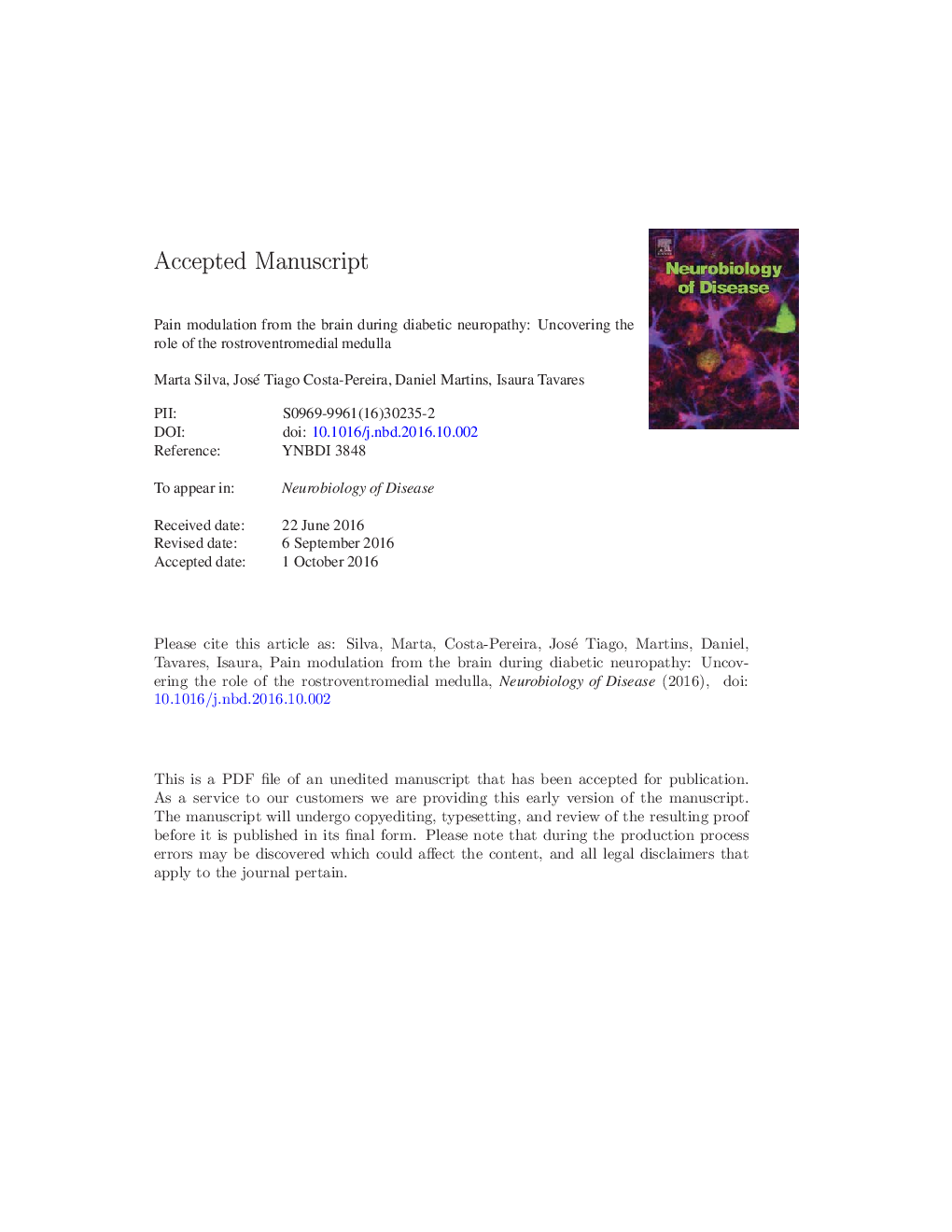| Article ID | Journal | Published Year | Pages | File Type |
|---|---|---|---|---|
| 6021239 | Neurobiology of Disease | 2016 | 47 Pages |
Abstract
Diabetic neuropathy has a profound impact in the quality of life of patients who frequently complain of pain. The mechanisms underlying diabetic neuropathic pain (DNP) are no longer ascribed only to damage of peripheral nerves. The effects of diabetes at the central nervous system are currently considered causes of DPN. Management of DNP may be achieved by antidepressants that act on serotonin (5-HT) uptake, namely specific serotonin reuptake inhibitors. The rostroventromedial medulla (RVM) is a key pain control center involved in descending pain modulation at the spinal cord through local release of 5-HT and plays a peculiar role in the balance of bidirectional control (i.e. inhibitory and facilitatory) from the brain to the spinal cord. This review discusses recently uncovered neurobiological mechanisms that mediate nociceptive modulation from the RVM during diabetes installation. In early phases of the disease, facilitation of pain modulation from the RVM prevails through a triplet of mechanisms which include increase in serotonin expression at the RVM and consequent rise of serotonin levels at the spinal cord and upregulation of local facilitatory 5HT3 receptors, enhancement of spontaneous activity of facilitatory RVM neurons and up-regulation of the expression of transient receptor potential vanilloid type 1 (TRPV1) receptor. With the progression of diabetes the alterations in the RVM increase dramatically, with oxidative stress and neuronal death associated to microglia-mediated inflammation. In a manner similar to other central areas, like the thalamus, the RVM is likely to be a “pain generator/amplifier” during diabetes, accounting to increase DNP. Early interventions in DNP prevention using strategies that simultaneously tackle the exacerbation of 5-HT3 spinal receptors and of microglial RVM activity, namely those that increase the levels of anti-inflammatory cytokines, should be considered in the future of DNP treatment.
Related Topics
Life Sciences
Neuroscience
Neurology
Authors
Marta Silva, José Tiago Costa-Pereira, Daniel Martins, Isaura Tavares,
